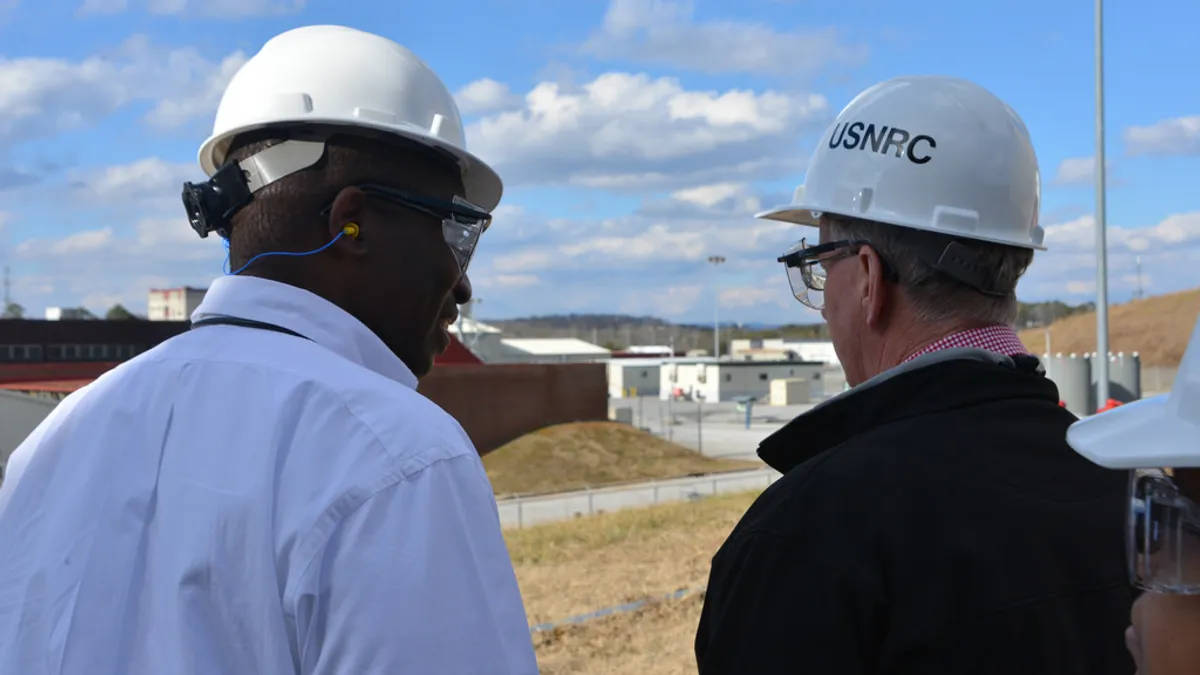Dive Brief:
- The Nuclear Regulatory Commission on Thursday announced it denied without prejudice an application by Oklo Power to construct the United States' first advanced nuclear reactor, in Idaho. The small design, dubbed "Aurora," would be capable of producing 1.5 MW of electric power.
- The NRC cited "significant information gaps" in the company's application, including details on potential accidents and its classification of safety systems and components. However, the company can resubmit its application and regulators said they are "prepared to re-engage" the company.
- Oklo is reviewing the decision, but in a statement said it was "eager to continue moving forward" on the Idaho reactor as well as others. Opponents of the project say a failure to provide safety information could put the public at significant risk in the event of an accident or attack.
Dive Insight:
Advanced nuclear reactors are the "key to a clean energy future," said Oklo, vowing to continue work on the new generation of power sources as well as the licensing application procedure.
"Our combined license application was the first-ever accepted for an advanced plant, so there are many new things for all to learn from and work through to support a successful review, and it provides a foundation from which we can supply additional information and continue work with the NRC," Oklo said.
Acceptance of its application is "an important step for the nation's interest, and we are continuing our work on advanced fission unabated," the company said.
But the NRC said that, despite several information requests, Oklo’s application continues to contain significant information gaps related to potential accidents and safety systems.
"These gaps prevent further review activities. We are prepared to re-engage with Oklo if they submit a revised application that provides the information we need for a thorough and timely review," NRC Director of the Office of Nuclear Reactor Regulation Andrea Veil said in a statement.
Oklo submitted its application in March 2020. The project is small relative to other advanced reactor designs, which could generate up to 300 MW. The Aurora design uses metal fuel to produce heat, which then goes through a heat exchanger to be converted into electricity.
According to Oklo, the design has multiple benefits over existing reactors including the ability to run for decades without needing to refuel.
But according to the Union of Concerned Scientists, NRC was right to reject the application.
"Oklo simply refused to give the NRC the basic information that the agency needs to assess compliance with its regulations and its legal mandate to protect public health, safety, and the environment," UCS Director of Nuclear Power Safety Edwin Lyman said in an email.
"The company asserted that its reactor was so small and so safe that it didn't need to play by the same rules as those used to license larger reactors," Lyman said. "But the fact remains that even a very small reactor contains enough highly radioactive material to cause significant radiological contamination in the event of an accident or a terrorist attack."
Oklo, however, maintains it will press ahead with the Idaho project as well as "other projects we are already engaged on with the NRC, including other budgeted application submittals."















